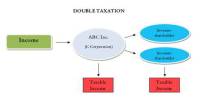An economic meltdown is a severe and prolonged economic crisis characterized by a significant decline in economic activity, widespread unemployment, financial insecurity, and a decline in a society’s overall well-being. It can manifest itself in a variety of ways, including a recession, depression, or financial crisis.
Economic meltdown refers to any of a variety of bad economic conditions, ranging from a severe, prolonged depression with high bankruptcy rates and high unemployment (such as the Great Depression of the 1930s), to a breakdown in normal commerce caused by hyperinflation (such as in Weimar Germany in the 1920s), or even an economically caused sharp rise in the death rate and possibly even a population decline (such as in former Soviet countries in the 1990s). Economic collapse is frequently accompanied by social unrest, civil unrest, and a breakdown of law and order.
Several factors can contribute to an economic meltdown:
- Financial Crises: Banking crises, stock market crashes, or disruptions in the financial system can lead to a loss of confidence and widespread economic panic.
- High Levels of Debt: Excessive debt, whether at the individual, corporate, or government level, can strain economic stability. If borrowers default on their obligations, it can lead to a chain reaction of financial distress.
- Global Economic Shocks: Events such as a global recession, geopolitical conflicts, or pandemics can have a cascading effect on economies worldwide.
- Speculative Bubbles: Rapid increases in asset prices, such as real estate or stock markets, can create bubbles. When these bubbles burst, it can result in significant economic downturns.
- Policy Mismanagement: Inadequate economic policies, including fiscal and monetary policies, can exacerbate economic insecurity. Inadequate regulation of financial institutions, for example, or inappropriate interest rate policies, may cause problems.
- Currency Crises: A fall in the value of a country’s currency can contribute to economic turmoil by affecting trade balances and raising import costs.
- Political Instability: Political uncertainty or instability can erode investor confidence and result in capital flight, exacerbating economic problems.
When an economic meltdown occurs, governments and central banks frequently implement various economic stabilization measures. Fiscal stimulus, monetary policy adjustments, financial sector bailouts, and structural reforms to address underlying issues may be included in these measures.
















